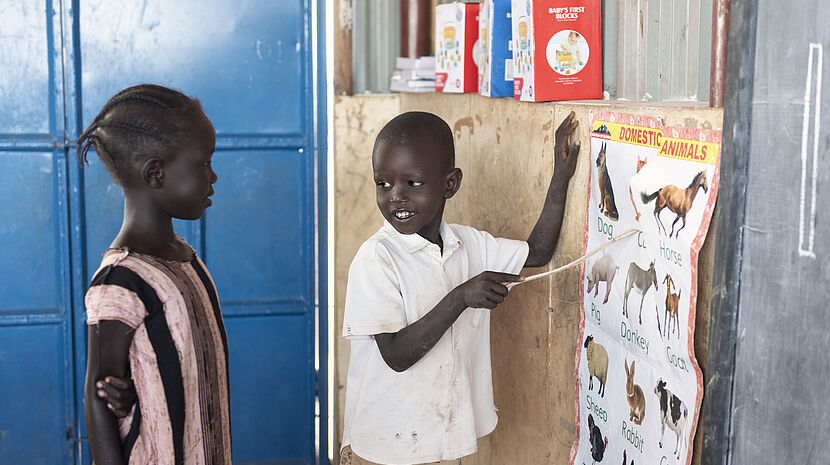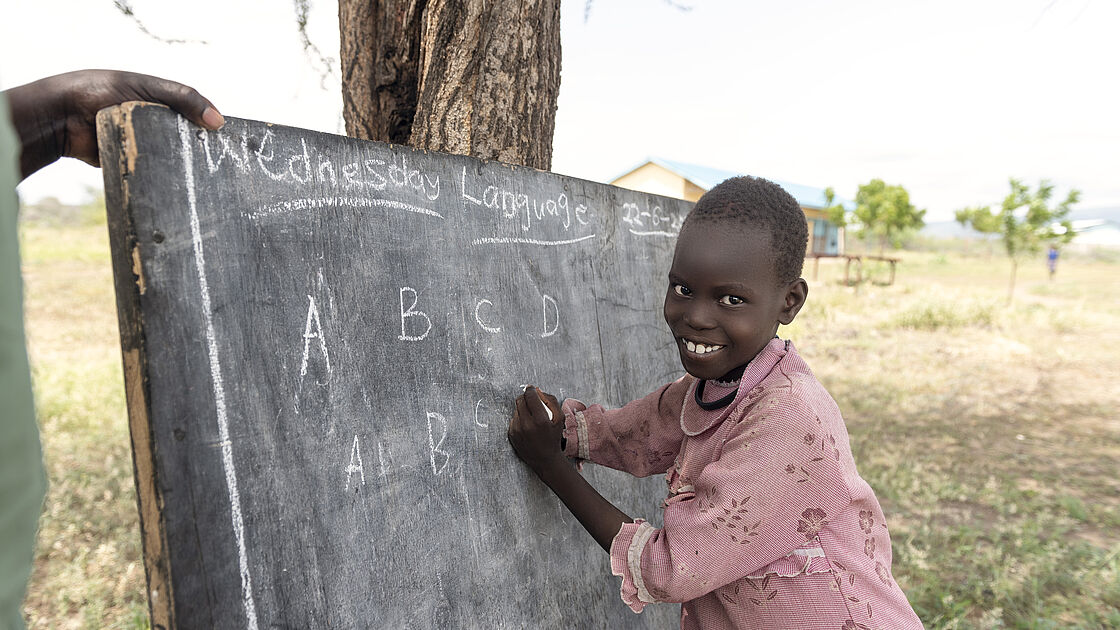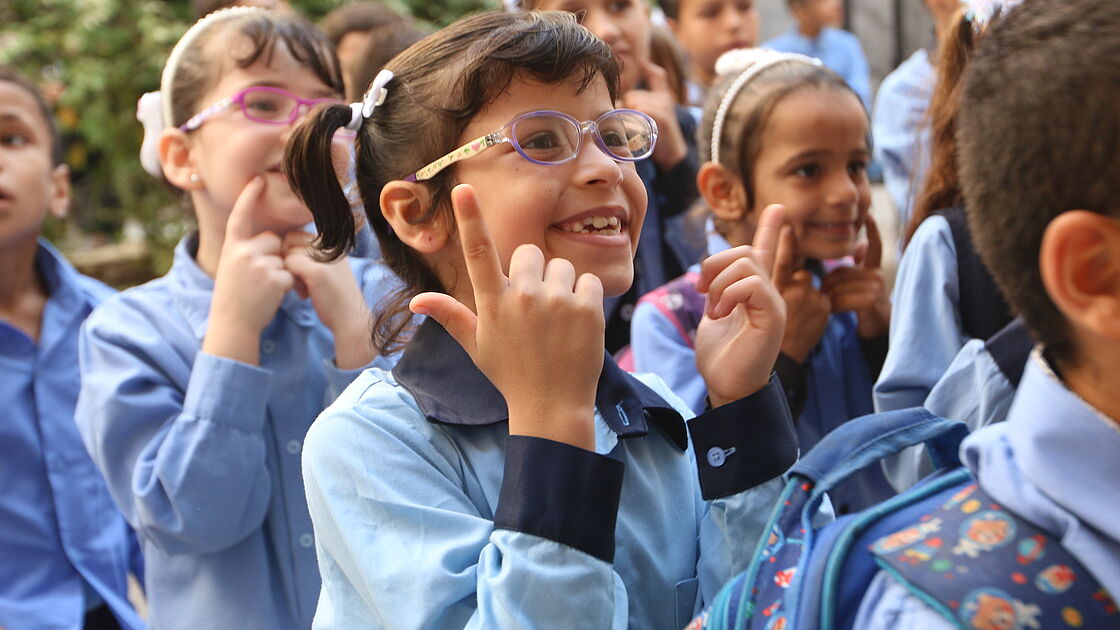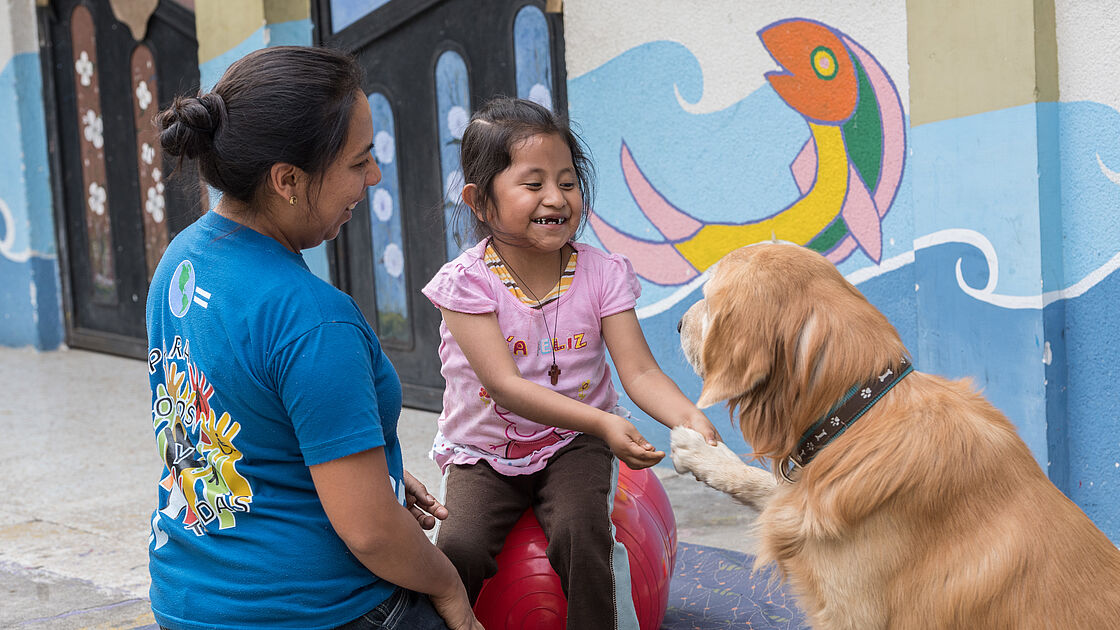Three CBM Projects Receive the Prestigious Zero Project Award

Key partnerships in 2023 also include working with the Carter Centre to providing critical eye surgeries in South Sudan and receiving the Zero Project Award 2024 for innovative inclusive education projects in Kenya, the Eastern Mediterranean and Guatemala. CBM is also leading the training of professionals from six African countries on the inclusion of persons with disabilities in humanitarian aid in Cameroon.
©CBM
These education projects in Kenya, the Eastern Mediterranean and Guatemala utilise inclusive education methods for children with disabilities and set new standards for overcoming educational barriers.
CBM is pleased to announce that three projects implemented in collaboration with our partners have been awarded the prestigious Zero Project Award 2024. This recognition goes to the projects across three continents, each demonstrating innovative approaches to inclusive education. The announcement was made yesterday during events to mark this year’s International Day of Persons with Disabilities.
The Zero Project Award is given to projects that address the needs and rights of persons with disabilities and contribute to global efforts to create a more just, equitable, and inclusive society – a world without barriers.
In 2024, the Zero Project Award focuses on innovations in the field of inclusive education, combined with advances in information and communication technology. CBM's winning projects, selected from a list of 164 practices and strategies from 62 countries and six continents, stand out for their unique approaches to providing accessible and quality education to children with disabilities, especially in challenging environments.
Kenya

Seven-year-old Josephine is one of the students of the Waldorf Kakuma Project.
©CBM
We are working with our partners Waldorf Kakuma Project (WKP) and African Inland Church Health Ministries (AICMH) to ensure that children with disabilities in a refugee camp in Turkana, northern Kenya, have access to quality inclusive education. This region of the country struggles with various crises, including displacement, food insecurity, and drought.
The Waldorf Kakuma project trains teachers in inclusive education and encourages them to actively seek out children with disabilities in the community and encourage them to attend school. Parents and caregivers are encouraged to enrol their children with disabilities in school as awareness and acceptance within the family and community increases.
The project thus serves as a catalyst for change, not only in education but also in the social fabric of the community by fostering an environment where inclusion is valued and actively sought. The project is co-funded through a grant from the German Federal Ministry for Economic Cooperation and Development (BMZ).
Eastern Mediterranean

Alma, 10 years old, is learning sign language at the Atfaluna Society for Deaf Children (ASDC).
©CBM/ASDC
In the Eastern Mediterranean, a project with partner Atfaluna Society for Deaf Children (ASDC) uses hybrid and blended e-learning methodologies to deliver quality education and counselling for children with and without disabilities, ensuring affordable access even in remote areas. The European Union funds the project.
“On behalf of everyone in Atfaluna, we would like to express that we are pleased to win the Zero Project Award. This award reflects the importance of disability inclusion models in education, and this award will motivate us as we continue our work in promoting the rights of persons with disabilities. On this occasion, we extend our deepest appreciation to our partner CBM for their ongoing support, and we are proud of sharing this achievement together,” Eng. Fady Abed, Director of Atfaluna said.
Guatemala

Azucena receiving therapy with Andrea at ADISA.
©CBM/argum/Einberger
In Guatemala, cultural differences, economic status, location, and attitudes can block children from accessing a quality education. CBM and its partners are working in five districts to integrate the Universal Design for Learning (UDL) approach and ensure that education is tailored to the needs of all learners. The project is implemented through the partner Asociación de Padres y Amigos de Personas con Discapacidad Santiago Atitlán (ADISA) and its three subpartners Fundación Guatemalteca para Niños con Sordoceguera Alex (FUNDAL), Asociación Rompiendo Límites (ASORO) and Senderos de Maíz.
UDL addresses these barriers and helps teachers to meet the diverse learning needs of their students. It brings fresh teaching methods that promote student interest and participation. The project is co-funded by the German Federal Ministry for Economic Cooperation and Development (BMZ).
“It is exciting and rewarding to witness the results of the implementation of the Universal Design for Learning (UDL) in classes. Watching children learn and actively participate in activities adapted to their individual learning styles, as well as seeing teachers’ enthusiasm about the process shows the positive impact of UDL”, says Miriam Gallegos Navas, CBM’s regional advisor in the development of the ADISA project.
“Children can excel and contribute to the educational environment, which makes the environment more inclusive, ending the separation of children with disabilities and without disabilities because everyone learns together.”
Sian Tesni, Global Advisor for Inclusive Education at CBM, said:
“Education is a fundamental right. But around the world, children with disabilities still face barriers that prevent them from accessing education and realising their full potential. These awards recognise the creativity and resourcefulness of our partners, who work with us to address these barriers according to their local context and open up possibilities for both children and teachers.”
The awards will be officially presented during the Zero Project Conference, scheduled to be held in Vienna from 21-23 February 2024.